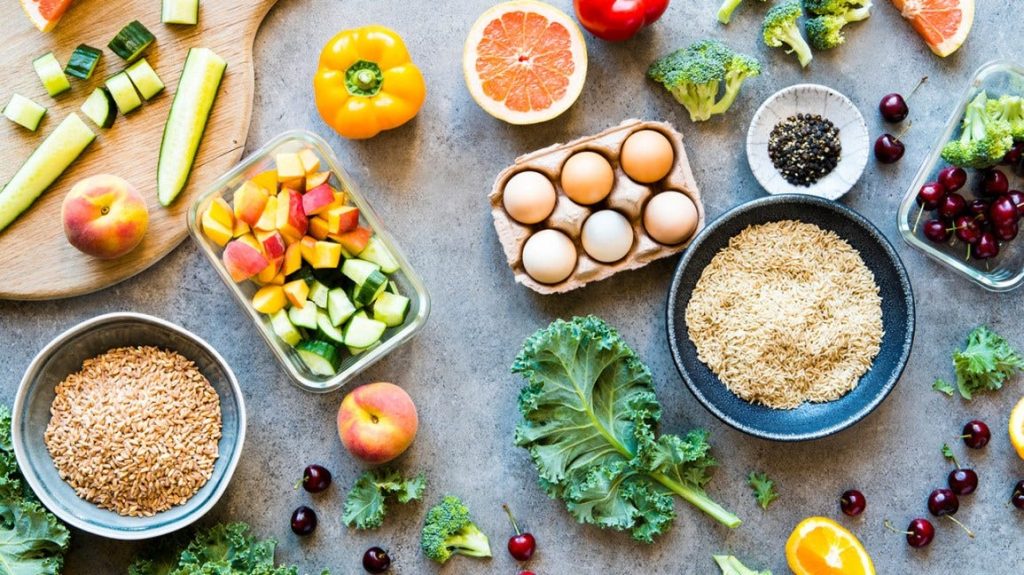Are you ready to embark on a journey towards a healthier, more sustainable lifestyle? Look no further than the rising phenomenon of plant-based diets! In recent years, there has been an incredible surge in people embracing this transformative way of eating, and it’s not hard to see why. From improving our overall well-being to mitigating climate change, plant-based diets have become more than just a trend – they are now recognized as a powerful tool for personal health and environmental preservation. Join us as we explore the fascinating rise of plant-based diets and discover how making conscious food choices can lead us towards a vibrant and fulfilling life!
Plant-Based Diets: What They Are and How They Work
Plant-based diets are becoming increasingly popular, and for good reason. Plant-based diets are packed with nutrients and antioxidants that can help improve your overall health. They also tend to be lower in calories and fat, which can help you lose weight or maintain a healthy figure. Here’s a look at what a plant-based diet is, how it works, and some of the benefits you can expect:
What is a plant-based diet?
A plant-based diet is made up of foods that come from plants only. This could include vegetables, fruits, grains, beans, nuts, seeds, and tofu. While some people may consider this type of diet to be vegetarian or vegan, there is no strict definition for these terms. A plant-based diet can also include small amounts of meat or fish if you’re eating seafood on occasion.
How does a plant-based diet work?
Compared to an animal-based diet, which typically consists of meat products such as chicken breasts or steak, a plant-based diet is lower in calories and fat. That’s because most plant foods contain few if any calories or grams of fat. And since protein is found mostly in animal products, many people who switch to a plant-based lifestyle find they need less protein in their daily diets. In addition to being low in calories and fat, plant-based diets are also high in fiber and other important nutrients such as antioxidants.
Types of Plant-Based Diets
There are many different types of plant-based diets, and each one has its own benefits. Some people swear by the vegan diet, which eliminates all animal products from their diet. Others may try a vegetarian or flexitarian diet, which allows for some animal products but is mostly plant-based. There’s also the adopted healthful eating approach, popularized by Dr. Neal Barnard, which encourages people to eat a variety of foods that are low in fat and high in fiber and nutrients. People on these types of diets often feel less hungry and have more energy because they’re getting the nutrients they need without all the processed foods typically found in a standard American diet. There’s the Mediterranean diet, which is high in antioxidants and contains a lot of fruit and vegetables.
The Pros and Cons of a Plant-based Diet
There are many benefits to a plant-based diet, both short- and long-term. Short-term benefits include reduced inflammation, improved skin health, and a boost in energy. Long-term benefits include better overall health due to lower levels of chronic diseases, lower environmental impact, and decreased dependence on animal products.
The main cons of a plant-based diet are that it’s more difficult to get enough protein and nutrients on a vegan or vegetarian diet, and some people find it harder to adjust to the change than others. Additionally, some people argue that a plant-based diet is not as preventive against diseases as a meat-based diet.
What to Eat on a Plant-Based Diet
On a plant-based diet, you’ll eat primarily plant-based foods like fruits, vegetables, whole grains, and beans. There are many different types of plant-based diets, so it’s important to find one that suits your specific needs and preferences. Some people prefer a more strict vegan diet while others may include small amounts of meat or dairy products.
Regardless of which type of plant-based diet you choose, there are plenty of delicious and nutritious options available. Here are some ideas for meals on a plant-based diet:
Breakfast: Start your day off with a nutritious breakfast containing fruit, oats, nuts, seeds, granola, or yogurt.
Lunch: Enjoy a wide variety of salads for lunch including chickpea salad with tahini dressing or black bean salsa with corn tortillas. For main course lunch try lentil soup with onion and garlic or vegetable stir fry with soy sauce and sugar free teriyaki sauce.
Dinner: Dinner can be filled with satisfying dishes like creamy roasted cauliflower or easy ratatouille made with eggplant, zucchini, tomatoes, and bell peppers.
Recipes
The benefits of a plant-based diet are numerous. Plant-based diets are linked to a reduced risk of heart disease, type 2 diabetes, some forms of cancer, and more. They can also help you lose weight and improve your overall health. In fact, research suggests that switching to a plant-based diet can have even better results than traditional weight loss methods like diet and exercise.
If you’re interested in trying a plant-based diet but don’t know where to start, there are plenty of recipes available online and in books. Here are five tips for starting a plant-based diet:
1. Start with small changes – If you’re not used to eating a plant-based lifestyle, make gradual changes at first. Try substituting one meal per week with a vegan dish instead of your usual meat or poultry option. Over time, you can increase the number of meals you substitute each week until you’ve fully adopted a vegan lifestyle.
2. Make sure your food is affordable – Eating a plant-based diet doesn’t have to be expensive. In fact, many vegan foods are cheaper than their meat counterpart. Try looking for vegan convenience foods like readymade vegan sandwiches or burritos that come in packs of six or more.
3. Stick to whole grains – Whole grains are important for both health and affordability reasons.
Conclusion
There is no question that the current trend in dieting is moving away from animal-based products and towards plant-based options. Some of the benefits associated with a plant-based lifestyle include improved heart health, lower blood pressure, and an overall decreased risk for chronic diseases. Whether you are looking to adopt a more plant-based lifestyle or simply want to make healthier food choices for your own benefit, our tips on how to eat a Plant Based Diet will help you along the way.


